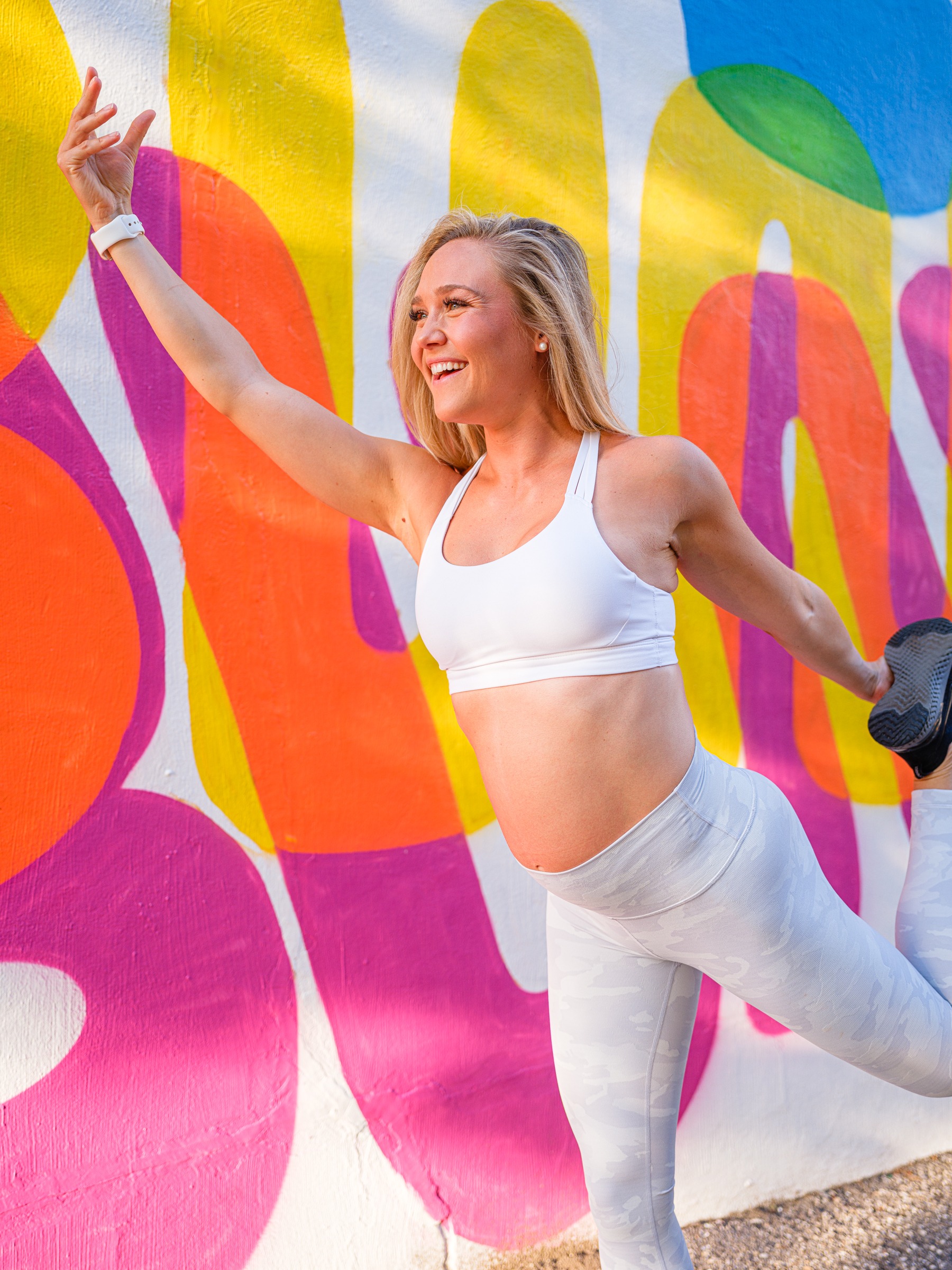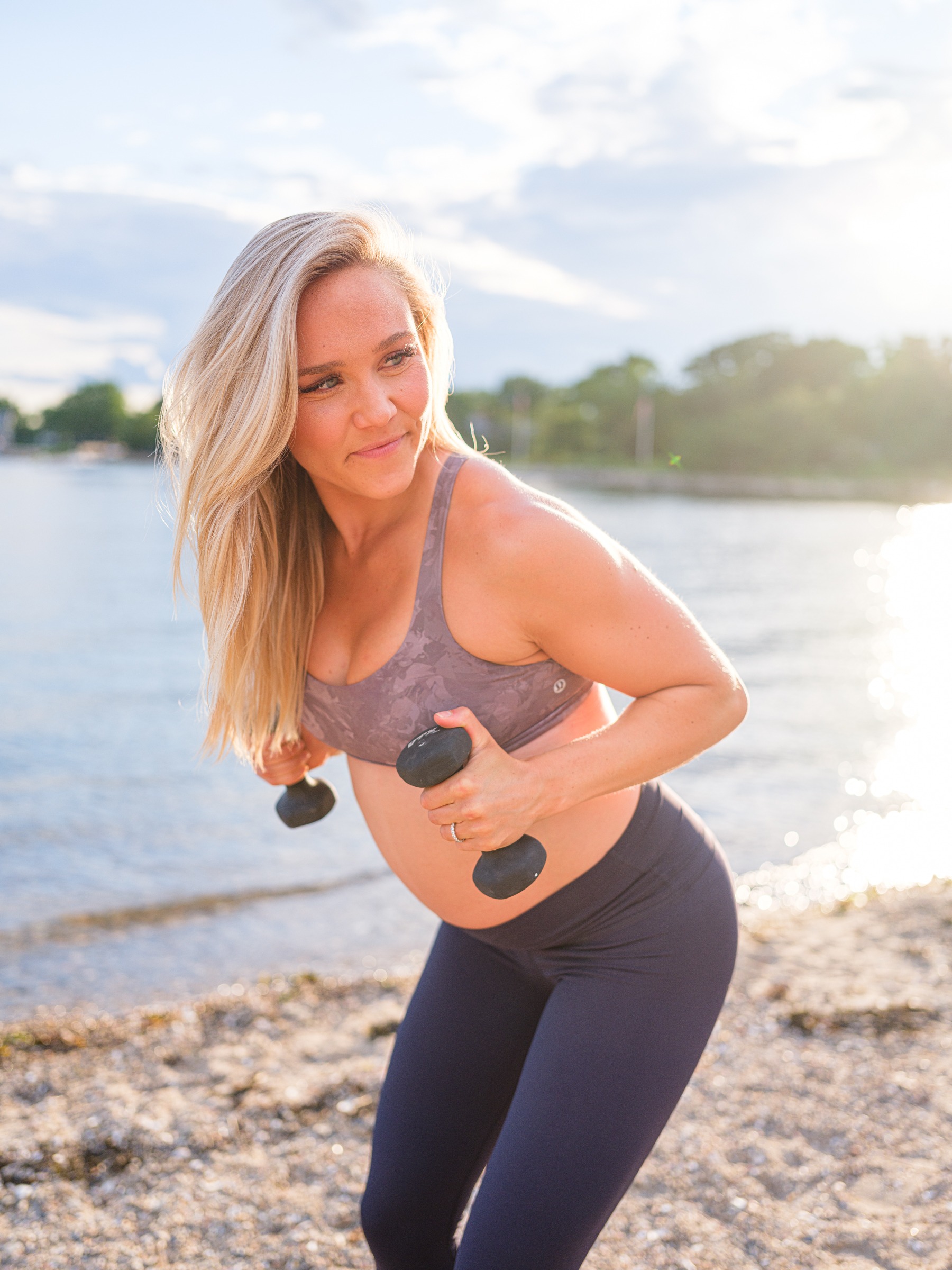Pregnancy Safe Core Exercises

Navigating pregnancy and staying fit can be pretty challenging, especially for those of us who genuinely love exercise but cannot participate in our regular fitness routines. This was the challenge I faced when I got pregnant and had to put my reformer group classes on hold, desperately seeking a safe and effective pregnancy workout routine. Today, we’re particularly excited to delve into the often-debated topic of safe ab exercises for pregnancy.
Pregnant women often encounter various hurdles when it comes to maintaining their fitness levels, including concerns about core strengthening exercises for pregnancy, managing diastasis recti, and adapting routines for each trimester. However, with the right guidance and expertise, it’s possible to navigate these challenges and maintain a strong core, healthy abdominal muscles, and pelvic floor muscles throughout pregnancy to minimize discomfort, prevent issues like low back pain, and support postpartum recovery.
We sought advice from Lauren Seib, an exceptional pre-and post-natal exercise specialist dedicated to supporting and empowering pregnant women during their pregnancy and postpartum journeys. As a devoted mother of two under two, Lauren’s personal experiences ignited a deep passion for helping other women navigate the complexities of fitness and wellness during this transformative chapter of their lives. With her impressive background, including writing for fitness magazines and holding numerous pre- and post-natal certifications, Lauren is the go-to expert on various aspects of prenatal fitness.
In your experience/to your knowledge, can prenatal exercise help you during labor? And getting your body back in shape after birth?
ABSOLUTELY! Research has shown that women who exercise during pregnancy have shorter labor with less pain intensity, a lower probability of medical intervention, lower risks of complications like gestational diabetes, preeclampsia, cesarean delivery, back pain, etc.
(In case you’re interested, here are some studies…one on pilates, swimming/labor time, blanketed fitness.) Studies of women who exercise during pregnancy have also shown to decrease postpartum recovery time, while being an essential factor in preventing depressive disorders. (source) The benefits are astounding and can really make a major difference in mental and physical health throughout your journey into motherhood!
What are some of your favorite exercises/moves you would recommend?
I hone in on what I like to call “Mama Moves,” or the movement patterns that will mimic your soon-to-be daily life of picking up toys, lowering your little one into their crib, reaching them overhead when playing, etc. My favorites are basic in nature, however you can always spice things up, of course, with weights, resistance bands, etc.: Squats, Deadlifts, Overhead Presses, Bird Dogs, etc. Then, of course, you want to start really focusing on strengthening your deep core and pelvic floor so 360 degree breathing (A.K.A. diagrammatic breathing), pelvic floor muscle activations (slow with 360 breath and fast with normal breathing patterns i.e. a Kegel.)
Pregnancy safe core exercises
In my experience, what confused me when I was pregnant was how to go about abs exercises. Hearing things like, “You shouldn’t lay flat on your back, as the baby’s weight might put pressure on the vein that carries blood to your heart”, enhanced my thinking to skip abs altogether. I figured I’ll just put in the work after birth as my abs won’t be visible for a while anyway.
What’s your take on this? Do you recommend continuing to do pregnancy core workouts?
SUCH a common area for concern/confusion so you aren’t alone! To start, no two pregnancies are ever the same so first and foremost, I can’t stress enough to always listen to your body. With that said, blanketing advice like “You can’t lay on your back anymore…” is irrationally rigid because some people (like myself with both pregnancies) are completely fine spending some time (a set here and there exercise-wise) on their back doing deep core work like Supine Heel Taps and Dead Bug variations, Glute Bridges, Chest Presses/Flyes, etc. Can being supine put pressure on the vena cava, the vein that carries blood to the heart? Yes, so it’s important to roll to your side between sets, should you feel okay. Warning signs of supine hypotension syndrome (what it’s called when your blood pressure falls from lying on your back > 20 weeks): Increased heart rate, nausea/vomiting, weakness, lightheadedness, dizziness, pallor and sweating. With all of this said, you absolutely can do core work when pregnant however it is going to shift come trimester two.
What are some of your favorite safe ab exercises for pregnancy?

Say buh-bye to crunches (not that many people will complain about that!) and variations like bicycles, V-Ups, etc. Instead, focus on that 360 breath work with Supine Heel Taps, Fallouts, Side Planks, Bird Dogs, Reverse Plank, Quadraped Hovers (A.K.A. Bear), etc. There are plenty of movements to sub in once your belly grows, even standing like Farmer’s Marches and Walks, Halos, etc.
Are there ways to avoid diastasis recti? Or is this primarily genetic / caused by the type of pregnancy?
To start, Diastasis Recti is one of the most notable pregnancy changes given the fact that your abdominal muscles and connective tissues (like the Linea Alba which runs between the 6 pack) have to expand to accommodate your growing belly. Most women have SOME degree of separation in their third trimester so it’s all about managing pressure when exercising/conducting daily activities along the way. What does that mean/look like? A common sign that you may notice is a bulge or cone at the midline when say, attempting to plank, pushup or pull-up later in pregnancy.
Oftentimes a preggo mama may not realize her alignment, core activation or breathing is off, which can increase the pressure in her center and as a result, create a dome-like bulge. Being aware and monitoring can be key…maybe you modify the movements that are triggering your DR or temporarily eliminate them. Acknowledging now can help reduce pain and instability potential in the future. So yeah…this is why we eliminate loaded rectus abdominis exercises like crunches/sit-ups and planks.
The good news: A lot of women’s DR will heal without any intervention. It’s important to also note that closing the gap between the abs doesn’t necessarily equate to “healing.” It’s pivotal to also consider the density and tension for optimal function. Working with a physical therapist and/or pre and postnatal exercise specialist will support you in your rehab protocol, as it’s highly personalized.
Expert Tips: Core Strengthening Moves for Expectant Mothers
A heartfelt thanks to Lauren Seib for sharing her invaluable insights and expertise on core strengthening exercises for pregnancy. Her guidance has provided pregnant women with essential knowledge to navigate their fitness journey safely and effectively, addressing concerns such as diastasis recti and adapting workouts throughout each trimester. By prioritizing a strong core and pelvic floor muscles, pregnant women can not only alleviate discomfort and reduce the risk of issues like low back pain but also support their postpartum recovery journey. Lauren’s dedication to empowering women during this transformative chapter of their lives is truly commendable, and her advice will undoubtedly benefit countless mothers-to-be.
Don’t forget to complement your fitness routine with our pregnancy safe ingredient checker, your trusted companion for choosing beauty products that align with your well-being. Here’s to safe ab exercises for pregnancy and a vibrant, fit motherhood ahead!
Check out Laurens’ Bump and Thrive, where she has an amazing program to optimize your body preconception and will soon launch her full spectrum online prenatal program.
Up next: Pregnancy Safe Skincare Routine
